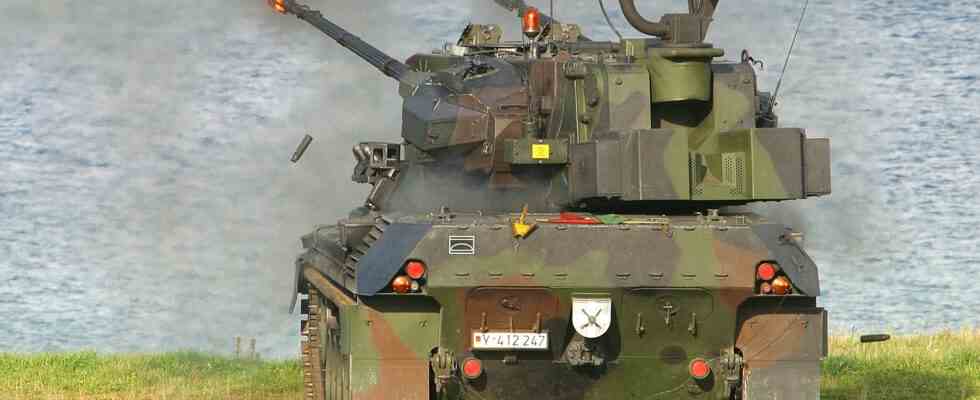Status: 07/13/2022 11:09 a.m
When it comes to arms exports, the Federal Security Council is actually responsible. But the committee has apparently not even met since the start of the Ukraine war. How can that be? Is there a somewhat transparent parallel body?
When it comes to German arms exports, the secret Federal Security Council has been the decisive body since 1955. In addition to Chancellor Olaf Scholz, its current members include the Head of the Federal Chancellery Wolfgang Schmidt, Foreign Minister Annalena Baerbock, Defense Minister Christine Lambrecht, Finance Minister Christian Lindner, Interior Minister Nancy Faeser, Justice Minister Marco Buschmann, Economics Minister Robert Habeck and Development Minister Svenja Schulze.
That is known. But then it gets nebulous. Because if you ask, the government spokeswoman will not even confirm whether the Federal Security Council has met or not.
A parliamentary question from the CDU raises questions
This total reluctance is at least astonishing, because the Ministry of Defense recently made at least a few surprising details public on a parliamentary question by CDU MP Thomas Röwekamp.
There it says, among other things, that “in 2022 the Federal Security Council has not yet made any approval decisions on the export of armaments, including deliveries of weapons from Bundeswehr stocks”. Apparently, the responsible cabinet committee has not met officially once since the start of the Ukraine war at the end of February.
Written request remains unanswered
Instead, the answer to the parliamentary question states that “approval decisions on the export of weapons of war and certain high-value goods are currently made regularly at management level by the Federal Chancellery and the federal security departments”.
A written request from ARD Capital Studios to the Federal Press Office, who is behind this management level and who made the decisions about arms exports, remained unanswered. Ultimately, it remains unclear who in the government decided on arms exports to Ukraine, such as the “Gepard” anti-aircraft tank or the delivery of the Panzerhaubitze 2000 from Bundeswehr stocks.
Defense Minister Lambrecht causes confusion
It gets even more confusing when you listen to Defense Secretary Lambrecht’s statements in the June 22 government survey. At the time, the SPD politician had claimed that applications for arms exports would “of course continue to be decided by the Federal Security Council” and that its meetings “do not necessarily take place in person.”
You can also vote on weapons deliveries in writing, in the so-called circulation procedure. So who decides? The CDU MP Röwekamp suspects a parallel body with which the “self-imposed reporting and control obligations of the parliament” are to be circumvented.
Because the Federal Security Council has an official statute, which in principle provides for written information to be given to the Bundestag. However, only if “constitutional interests do not prevent publication.”
Government publishes arms export list under pressure
One thing is certain, the chancellor and defense minister have stonewalled arms exports to Ukraine for weeks and months – allegedly for security reasons. The federal government only reacted one day before the Union wanted to make the lack of transparency a topic in the Bundestag.
Since June 21, delivered weapons and aid have been made public on the Internet. However, without justifying the decisions. In addition, there is no information on the German companies involved and on the total financial volume of arms exports. This publicly accessible information is not enough for the Union MP Röwekamp, but he is largely powerless as an opposition politician.
Debate has been smoldering for a long time
Because the dispute between members of parliament and the government about the lack of transparency in arms deliveries has not only smoldered since the Ukraine war. As early as 2014, the Federal Constitutional Court ruled that the MPs’ right to information on arms deliveries is not unlimited and that the Federal Government does not have to justify its arms export licenses through the Federal Security Council. At that time, the Union provided the Chancellor and the Greens had complained about planned tank deliveries to Saudi Arabia.
The traffic light coalition is currently in power, which promised more transparency in its coalition agreement with an arms export control law. But then the Russian war of aggression against Ukraine intervened.

